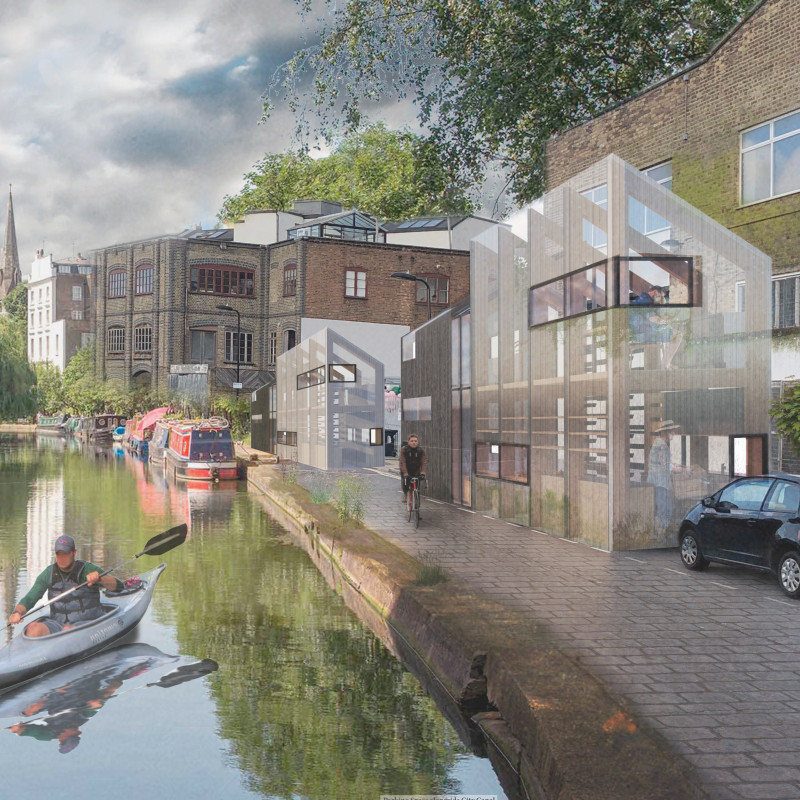5 key facts about this project
The architectural layout consists of multiple interconnected structures that utilize a range of materials, including sustainable timber, glazed openings, and recycled polycarbonate. This material palette not only reinforces environmental sustainability but also fosters a closer relationship between residents and their surroundings. The design promotes natural light penetration, enhancing the quality of living environments while incorporating biophilic elements such as vertical gardens.
Innovative Modular Design Approach
The project employs a modular design approach to accommodate varying resident needs. The layout features 1-bedroom, 2-bedroom, and flexible multi-bedroom units, allowing customization and scalability. This design strategy promotes efficient construction processes while minimizing waste, aligning with the project’s sustainability objectives. Community spaces are strategically placed to encourage interaction, with communal kitchens, gathering areas, and activity zones interspersed throughout the development. This arrangement reinforces the project’s core philosophy of fostering social ties among residents while optimizing land use.
Integration of Sustainable Systems
Sustainability is a cornerstone of this architectural project, with significant attention given to eco-friendly systems and technologies. Rainwater harvesting features prominently, enabling efficient resource management within the community. The incorporation of automated irrigation systems further underscores water conservation efforts. Vertical gardens not only enhance aesthetic appeal but also contribute to urban biodiversity and local food sourcing. These elements, combined with the overall architectural vision, position "From Road to Community" as a forward-thinking model for urban living.
The project serves as a practical response to contemporary housing demands while maintaining a commitment to sustainability and community welfare. For those interested in architectural plans, sections, and design ideas, exploring a detailed presentation of this project will provide valuable insights into its conceptual underpinnings and execution.


























